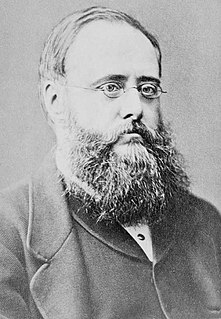A Quote by Hans Christian Andersen
How little do the wisest among us know of that which is so important to us all.
Related Quotes
Culture and society determined sexual desirability as what makes us important so long that it's part of our sensibility from birth.Little girls know. From around 2 or 3, the pretty ones already know how and why they get attention. And how quickly they learn to play it. Use it. And how quickly the rest of us figure out we don't have it.
Have you ever rightly considered what the mere ability to read means? That it is the key which admits us to the whole world of thought and fancy and imagination? to the company of saint and sage, of the wisest and the wittiest at their wisest and wittiest moment? That it enables us to see with the keenest eyes, hear with the finest ears, and listen to the sweetest voices of all time? More than that, it annihilates time and space for us.
People need to learn how to respond to each other's hatreds with love - which is what Jesus taught us, which is what Buddha came here to teach us, which is what Muhammad taught us, which is what all of the great spiritual masters who have ever walked among us who live at those highest energies taught us - responding to force with more force will just create more problems.
One of the greatest of poets, Coleridge was one of the wisest of men, and it was not for nothing that he read us this parable. Let us have a little less of "hands across the sea," and a little more of that elemental distrust that is the security of nations. War loves to come like a thief in the night; professions of eternal amity provide the night.
It's very important for us because we are viewers, first and foremost. We view more than we make. For us, it's important that the viewing experience is fun and thrilling and exciting and fresh and different. Those are our goals when we are writing something. When you watch it in the theatre, which I hope you will, how will you have the best experience possible? That's really important to us, and is the most thrilling.
Suppose there arise a dispute relative to some important question among us, should we not have recourse to the most ancient Churches with which the apostles held constant intercourse, and learn from them what is certain and clear in regard to the present question? For how should it be if the apostles themselves had not left us writings? Would it not be necessary, in that case, to follow the course of the tradition which they handed down to those to whom they did commit the Churches?



































